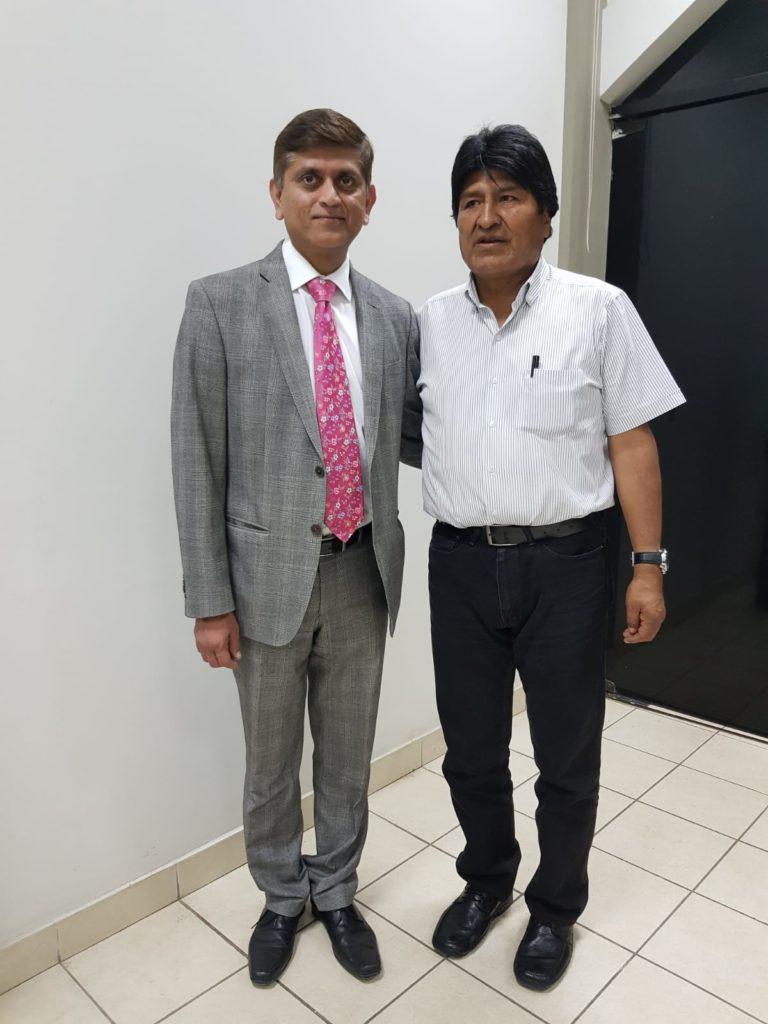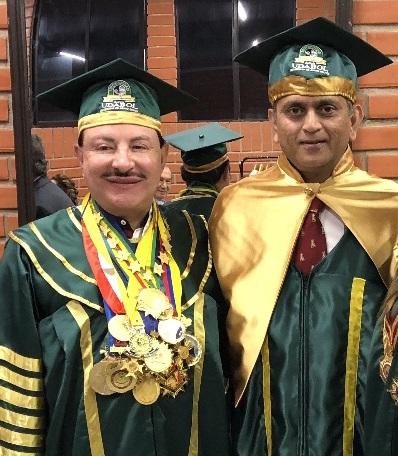Globalisation of technology-enhanced learning for surgical education

Mr Bijendra Patel- Clinical Senior Lecturer in Upper Gastrointestinal Surgery- and his colleague, Professor Shafi Ahmed (Consultant Colorectal Surgeon), were invited to Bolivia to visit Universidad de Aquino Bolivia (UDABOL) to discuss the use of technology-enhanced learning for surgical education as preparations were made for the launch of Bolivia’s first digital hospital.
Mr Patel is a leading expert in developing higher education degrees for acquiring surgical skills by simulation, and whilst in Bolivia he met the President of Bolivia, Evo Morales, and was awarded with an honorary PhD from UDABOL by Dr Martin Dockweiler, the President of UDABOL, in recognition of his pioneering work in the field of technology-enhanced learning.
In 2005, Queen Mary University of London became the first university in the world to offer a Masters degree in laparoscopic surgical skills. Taught here at the BCI and directed by Mr Patel, the MSc Laparoscopic Surgery and Surgical Skills course uses simulator technology, virtual reality and augmented reality to help accelerate surgical training and improve the skills essential for building confidence in clinical practice.

The learning curve for laparoscopic surgery is steep and long, and essential skills include hand-eye coordination, depth perception and being able to work on the human anatomy from a two-dimensional perspective from a television monitor. Training is required throughout a surgeon’s career in order to maintain these skills. Simulators provide a controlled environment to train, allowing mistakes to be made throughout the learning process without risking the lives of patients.
In October 2018, Mr Patel launched a global Masters programme for surgical skills based on the use of technology-enhanced hybrid learning. Students learn using a virtual reality application, and gain hands-on skills using surgical equipment that can be attached to laptops whilst following online demonstrations. Currently, students from the UK, Australia, Spain and Germany are enrolled on the programme.
Category: General News

No comments yet